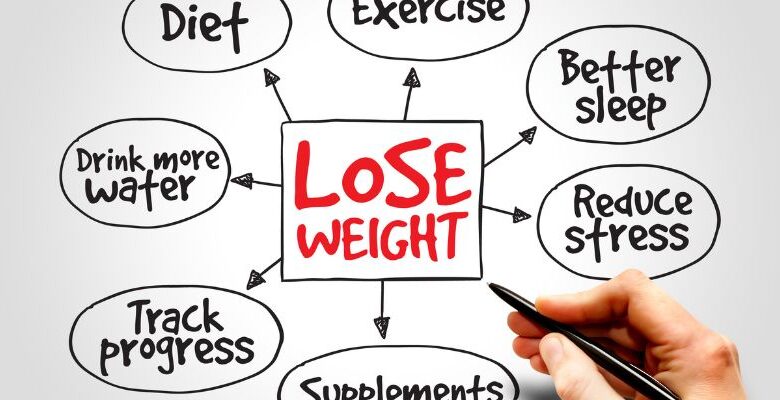Effective Weight Loss Strategies

Losing weight can be a challenging journey, but with the right strategies, it becomes an achievable goal. In this article, we will explore effective weight loss strategies that focus on healthy eating, regular exercise, mindful habits, and overall well-being. By implementing these strategies, you can enhance your chances of successful and sustainable weight loss.
Setting Goals
Before starting your weight loss journey, it’s essential to set realistic and specific goals. By defining your goals, you can stay motivated and track your progress effectively. Determine the amount of weight you want to lose and establish a timeframe for achieving your goals.
Healthy Eating
A crucial aspect of weight loss is adopting a healthy eating plan. The following are two critical components to consider:
Balanced Diet
A decent eating routine incorporates various food sources from various nutrition classes. Center around consuming entire grains, lean proteins, organic products, vegetables, and solid fats. Avoid highly processed and sugary foods as they often contribute to weight gain.
Portion Control
Practicing portion control helps you manage calorie intake and prevents overeating. Utilize more modest plates, bowls, and utensils to control segment sizes. Focus on your body’s yearning and totality signals, and try not to eat until you feel excessively stuffed.
Regular Exercise
Regular physical activity is vital for weight loss. Integrate the accompanying activities into your daily practice:
Cardiovascular Exercise
Cardiovascular exercises, such as running, swimming, or cycling, help burn calories and improve heart health. Hold back nothing 150 minutes of moderate-power oxygen-consuming action every week.
Strength Training
Strength training exercises, like lifting weights or bodyweight exercises, help build muscle mass. Increased muscle mass boosts metabolism and enhances fat burning. Aim for two to three sessions of strength training per week.
Mindful Eating
Practicing mindful eating encourages you to pay attention to your food choices, eating habits, and internal cues. The following advice can help you include mindful eating:
- Slow down and savor each bite.
- Eat without distractions, such as TV or phones.
- Listen to your body’s hunger and fullness signals.
- Engage all your senses to appreciate the flavors and textures of food.
Hydration
In order to lose weight and maintain overall health, proper hydration is crucial. Drinking an adequate amount of water helps curb cravings, supports digestion, and boosts metabolism. Aim to consume eight glasses of water or more each day.
Sleep Quality
Getting enough sleep is crucial for weight management. Insufficient sleep can interfere with the hormones that regulate hunger and fullness, increasing appetite and cravings. Each night, try to get seven to eight hours of good sleep.
Stress Management
Chronic stress can hinder weight loss efforts. Find healthy ways to manage stress, such as practicing relaxation techniques, engaging in hobbies, or seeking support from loved ones. Add stress-relieving activities to your regular schedule.
Tracking Progress
Keep track of your weight loss progress to stay motivated and make necessary adjustments. Use a journal, mobile app, or online tracker to record your food intake, exercise, and measurements. To stay motivated along the journey, recognise your victories.
Conclusion
Effective weight loss strategies involve a combination of healthy eating, regular exercise, mindful habits, and holistic well-being. By setting goals, adopting a balanced diet, incorporating exercise, practicing mindfulness, staying hydrated, prioritizing sleep, managing stress, and tracking progress, you can achieve successful and sustainable weight loss. Remember, weight loss is a gradual process, so be patient and kind to yourself as you embark on this journey toward a healthier lifestyle.




